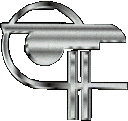![]()
u.s.s. Lancelot NCC-74410
diplomatic/JAG dEPARTMENT
![]()
TRILLS
 Trill,
also known as the Trill Homeworld, is a class M planet in the Alpha Quadrant and
home to the Trill population consisting of humanoids and Joined Trills. It is a
permanent member of the United Federation of Planets. The planet's atmosphere is
composed mainly of nitrogen and oxygen. The
symbiotic relationship between Trill species developed after a planet-wide
ecological disaster.
Trill,
also known as the Trill Homeworld, is a class M planet in the Alpha Quadrant and
home to the Trill population consisting of humanoids and Joined Trills. It is a
permanent member of the United Federation of Planets. The planet's atmosphere is
composed mainly of nitrogen and oxygen. The
symbiotic relationship between Trill species developed after a planet-wide
ecological disaster.
Trills are a symbiotic species consisting of a humanoid host and a veriform symbiont which lives in the abdomen of the host. The worm-like symbiont is extremely long-lived,
As a joined species, Trills
enjoy a special relationship with the past and the future. They live many
lifetimes with the benefit of remembrance, knowing that in all likelihood they
will survive beyond the lifetime of an individual host. This give them a certain
air of wisdom and calm, shared only by species of great longevity, such as
El-Aurians and the Vulcan race. Trills try to rise above the temptations of
romance and greed; however, the goal of all symbionts is to live a rich and
varied existence through the bodies of their hosts.
The relationship between a
Trill symbiont and its humanoid host is complex. A joined Trill integrates the
personalities of all the symbiont's previous hosts. Coping with so many
different elements can be difficult. For this reason, host candidates are
screened very carefully. The host must have a strong desire to lead a full life,
and the will to pursue that life, otherwise he or she risks being overwhelmed by
the symbiont's previous personalities.
Not all Trills are chosen to join with a symbiont. Every year at least 5000 candidates are accepted into the Trill Initiate Program but, in most years, only 300 symbionts are available for joining.
Trill Initiates go through a vigorous training program very similar to a
university or an academy. However, while an initiate may do well in this part of
the training, the visit with a joined Trill field docent is the deciding factor
in whether or not the initiate is able to graduate to host status. The field
docent must determine whether or not the initiate has the strength of personal
direction and independence to become a host. The field docent can challenge an
initiate to find their path in many ways, If the initiate doesn't answer the
challenge, he or she will get a black mark on their record. Worse yet, they can
fall behind seemingly less qualified initiates by simply following the rules too
closely, or trying to formulate their goals to please others.
Hosts are considered a link in
the chain of a symbiont's life. Each link must be strong and unique.
There are many taboos in Trill society. One of the strongest is that no joined Trill is to resume a relationship with another Trill from a past host's lifetime. This means that a joined Trill must avoid former hosts' family members and lovers. When these paths are crossed, great measures are taken to assure that the joined Trills do not get too close.
Resuming a relationship from a past-host lifetime is called 're-association'. It
is considered quite unnatural, and the punishment for it is extreme. Joined
Trills who re-associate are exiled, condemning the symbiont to die with that
host body. As the primary instinct of the Trill host is to protect the life of
the symbiont at all costs, re-association happens only rarely.
Although re-association is taboo, Trill symbionts are not punished for carrying on relationships with other species from one joining to the next. Many joined Trills choose to carry on the work of past host lifetimes.
The life of a Trill symbiont can be enriched by extreme variations in its hosts'
personal goals.
The symbiont can survive for 96 hours following the death of the host. If it is transferred to a new host within that time, it will continue to survive. It cannot survive absolute destruction of the host body. All skills are transferred to the new host, but are based off of the new host's physical and mental abilities.
![]()
![]() Judge Advocate General's Corps
Judge Advocate General's Corps
![]() United
Federation of Planets Constitution
United
Federation of Planets Constitution
![]() Uniform Code of
Starfleet Justice
Uniform Code of
Starfleet Justice
![]() U.S.S. Lancelot Diplomatic /JAG Department
U.S.S. Lancelot Diplomatic /JAG Department
![]() U.S.S. Lancelot Diplomatic/JAG Personnel
U.S.S. Lancelot Diplomatic/JAG Personnel
![]() Starfleet Diplomatic/JAG Headquarters
Starfleet Diplomatic/JAG Headquarters
Legal Topics:
![]()
Should you have any questions or comments please e-mail the Chief Diplomatic/JAG Officer at the Diplomatic/JAG Department aboard the U.S.S. Lancelot.
![]()